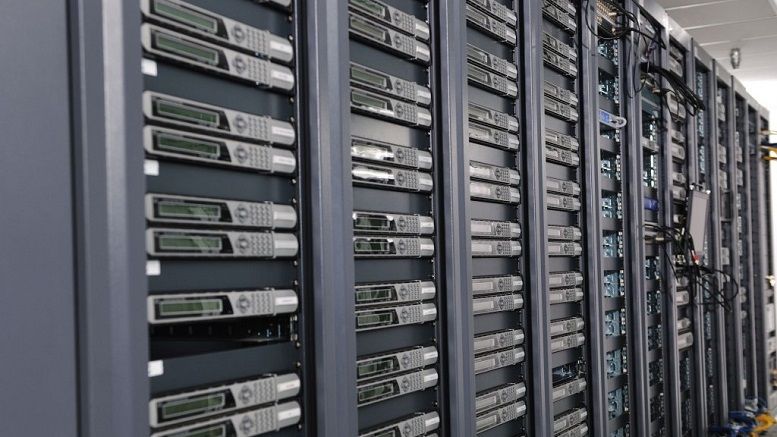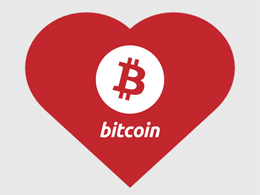
Op Ed: Kubrick, Clemenceau, and Cryptocurrencies: How I Learned to Stop Worrying and Love Digital Money
Executive Brief.
One of the most serious challenges preventing widespread acceptance of cryptocurrency by the general public is the sense of unease most people experience when confronted with new ideas. And since the existing monetary system seems, at least on the surface, to meet that public’s current needs, most people are fearful of anything that might upset the status quo. As a result of that fear, new concepts like digital currency are often viewed with distrust.
Still, if history teaches us anything about societal changes, it is that the most radical shifts in the status quo are typically viewed with skepticism when they first begin to emerge. From the automobile to computers and the internet, each new major advance in modern life has struggled against the tide of history before finally gaining the recognition and acceptance needed to fundamentally improve our lives. One of those most recent advancements – the internet – should serve as a clear example of why we have no reason to fear digital currency, and should in fact be cheering the potential benefits it offers to a world in desperate need of a shift in paradigm.
As former French Prime Minister Georges Clemenceau once observed,
“War is too serious a matter to entrust to military men.”
And though that sentiment was disputed by many military men – including the fictional General Jack D. Ripper in the movie Dr. Strangelove or: How I Learned to Stop Worrying and Love the Bomb, it has nevertheless remained a governing philosophy in many nations around the world. That notion – that even recognized experts in a field are not always the best qualified to govern everything that occurs within its realm – is echoed in society’s approach to many areas of daily life.
Take the internet, for example. While it is by no means as decentralized as it was four decades ago – or as decentralized as many advocates are pushing for it to become, it still remains something that more closely resembles an active force of nature than anything designed by government central planners. In fact, the example provided by the internet is one of the reasons why a growing number of people are becoming more comfortable with digital currencies like Bitcoin and DNotes.
The Reasons for Distrust
Many proponents of cryptocurrency have yet to understand why so much of the public remains distrustful of the very notion of digital currency. To be sure, much of their discomfort comes from either not having heard anything about it or from the fact that they cannot imagine any other type of monetary system than the fiat money that has been at the center of their financial existence all their lives. That can cause them to view digital currencies as little more than a curiosity, and thus scarcely worthy of further investigation.
Others, however, have different reservations that prevent them from seeing the potential benefits cryptocurrency can provide. Many of these people have a distrust of anything digital, since they associate the digital universe with a lack of security and oversight – traits that are unlikely to generate trust in the minds of consumers who expect money to be secure. Many believe Bitcoin, DNotes, and other cryptocurrencies to be nothing more than software. And since software can be hacked, they view the entire concept of digital currency with skepticism.
The problem with that outlook is that it ignores the reality of what digital currency actually is. In many respects, it can be useful to think about cryptocurrency in the same way that we think about the internet. Indeed, they have much in common with one another, particularly when you consider the similarities between their architectural frameworks, and the way in which we utilize them. Understanding those similarities can help you to better understand why digital currency is safer and more relevant than most people think.
The Internet and Cryptocurrency
In many ways, the rise of the internet and cryptocurrency parallel one another to a large degree. In the early days of the internet, it was a decentralized project that was largely consigned to the fringes of society. It was not until later that large companies and other entities began to impose more centralized control over the structure and infrastructure of the internet and its services. Today, much of that initial decentralization has been submerged beneath layers of corporate control, and most people remain blissfully unaware of just how centralized everything is when it comes to the architecture that powers their internet.
Digital currency shared similar beginnings. Bitcoin’s basic protocol – the blockchain – is a decentralized ledger system that relies on multiparty consensus to power its operations. This decentralization leaves its operations outside the control of multinational corporations or government entities, in much the same way that the internet existed at its earliest stages. And, like the internet, Bitcoin and other digital currencies only interest a small portion of the population at the present time.
At their core levels, both the internet and the blockchain protocol that empowers digital currency provide us with the type of open platforms needed for all manner of disruptive creativity. The open architecture of the internet provided the creative freedom needed for the establishment of everything from the World Wide Web to social media platforms, Google, and giant internet companies. When the internet was young, few people envisioned just how disruptive it would eventually be to the established order of things, or the extent to which it would spawn innovation.
The Bitcoin blockchain is where the internet was in those early days. It remains the decentralized ledger it was designed to be, but few have yet to grasp its real potential. Sure, Bitcoin, DNotes, and other prominent cryptocurrencies make solid use of the blockchain architecture, but those currencies are really just the frontrunners to the more pervasive and society-altering changes that blockchain promises. Its potential for increased efficiencies in banking, accounting, and other important areas of societal interaction is already being acknowledged by many.
Just as the internet served as the platform for a wide range of applications that have literally transformed the way modern society functions, so too can Bitcoin’s blockchain radically alter the way that we deal with finance, record-keeping, and many other transactions. And, just as most people were completely unaware of the internet’s true potential in the earliest days of its existence, the vast majority of people today have no idea how digital currency and the blockchain that enables it may soon reshape their lives.
Similar Challenges
Of course, it is also worthy of noting that the challenges confronting Bitcoin and the blockchain also echo many of the difficulties faced by the early internet. The technology is still evolving, digital currency continues to impact only a small portion of the population, and there is a need for greater scalability if the blockchain is ever going to provide a platform for the type of disruptive innovation many people now envision.
Cryptocurrency proponents and skeptics alike, however, should take comfort from the knowledge that the internet not only faced those same challenges, but overcame them. Today, those challenges are long forgotten by a society that has seen that platform’s potential for enhanced commercial activity and ease of access to information realized to an extent that even the most farsighted dreamers never imagined possible. More importantly, those changes have occurred at a rate of speed that seems dizzying when compared to the long, slow march of history. There is good reason to believe that the future of digital money and the blockchain can be every bit as transformative.
Learn to Stop Worrying
Here’s the thing to remember about advancements like the internet, Bitcoin and other cryptocurrencies, and the blockchain: the vast majority of people always dismiss such ideas in the early years after their creation. Just a few short decades ago, the average internet user regarded the internet as little more than a tool for entertainment. As businesses migrated onto the World Wide Web in large numbers, and companies like Google figured out how to harness the power of the Net, its usefulness grew by leaps and bounds. Today, the internet is an integral part of many people’s lives, and few of them can imagine life without it.
Bitcoin and blockchain are at a similar point in their own evolutionary journey. The base of people for whom digital currency has relevance remains small, and its impact on the broader society has yet to materialize. In spite of that, entrepreneurs and existing businesses are already seeing the potential, and making the types of investments that can fuel growth. Even governments are taking notice, as they wrestle with decisions about how best to co-exist with these new currencies.
More importantly, we must recognize the broader trend in the world today. The desire for decentralization is all the rage these days, and there are groups across the world struggling to decouple humanity from the type of centralized control that has defined most of its existence. Just look at the various proposals for replacing the current internet with one that is completely decentralized, peer-to-peer lending opportunities, and crowdfunding. These and other innovative strategies are all born out of the desire to reduce centralized control over our lives.
Clemenceau’s observation about war and military leaders was poignant, and is echoed to some extent by the drive toward decentralized internet and currency. The internet provides access to information and capabilities that are so important to individual liberty that they should not be entrusted to policy makers and other elites. Most people would justifiably object to the notion that government should have the power to control access to websites – something we already see happening in many repressive regimes around the world. Those same people should be at least nominally concerned that governments have so much control over their money.
The decentralization of the internet holds forth the promise of the democratization of the internet. Decentralized money is democratized money that is no longer subject to whims and caprices of those who control the current fiat monetary system. Together, these two advancements can pave the path to a future where no one is denied access to opportunity due to the circumstances of his or her birth – a future where central planners cannot devalue your money just to improve their own political fortunes.
A future with digital currency in it is a more democratized future, and one that we should all embrace. So, learn to stop worrying, and learn to love cryptocurrency. It’s just a matter of time before it changes all our lives for the better.
Related News





